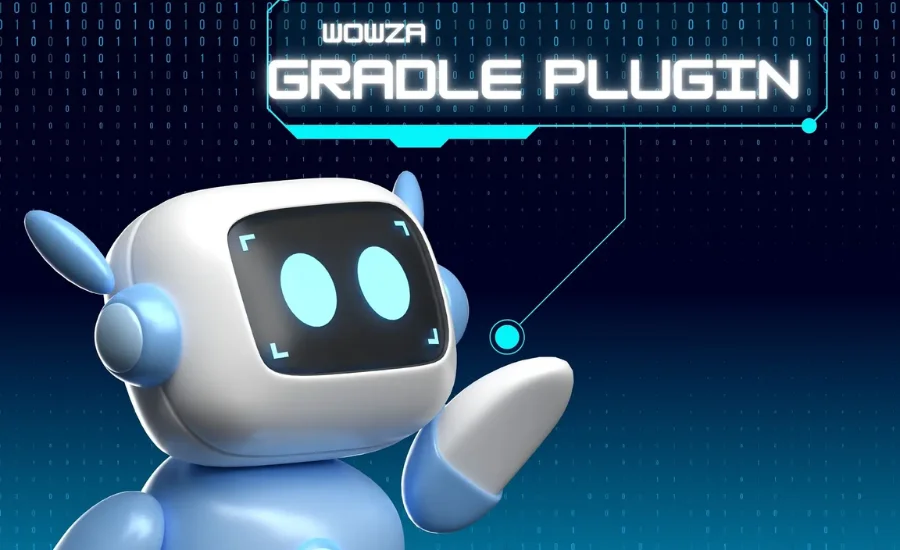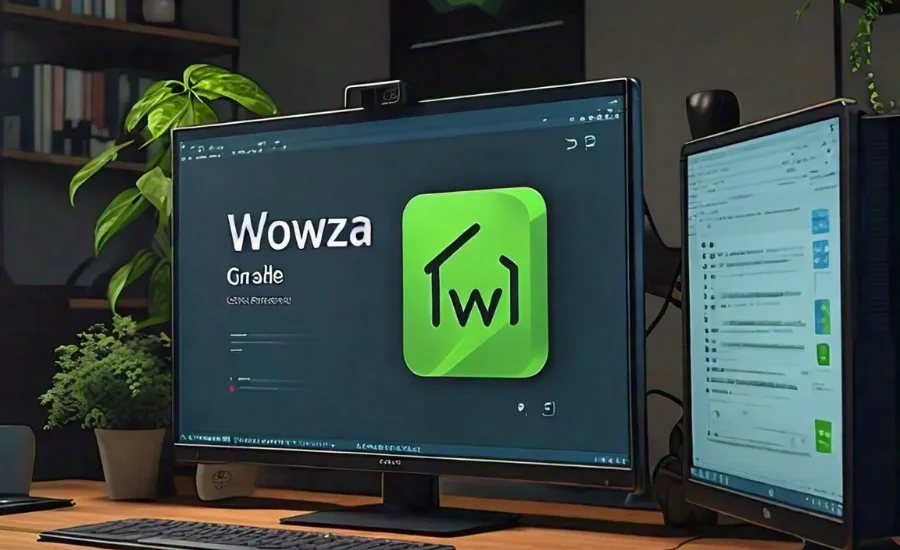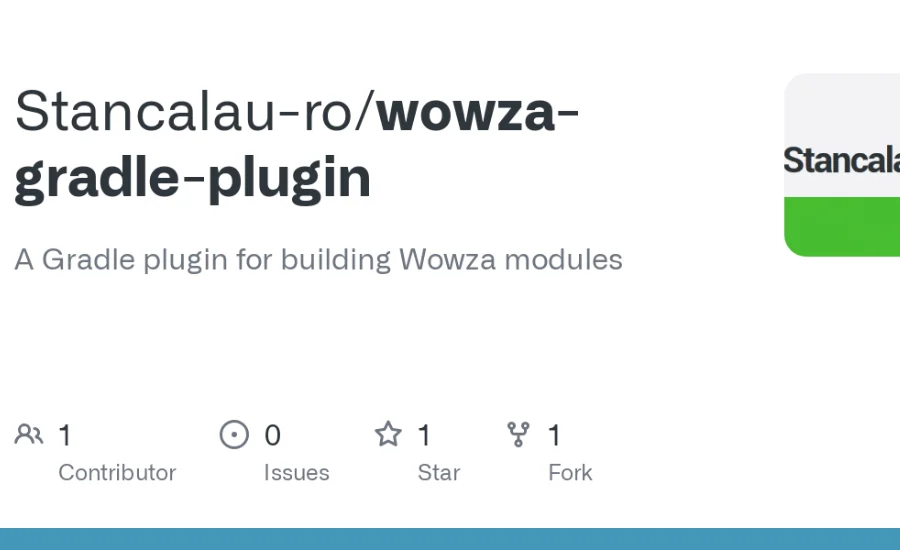In the realm of streaming media, leveraging efficiency and automation is crucial for optimizing workflows. The Wowza Gradle Plugin has emerged as an essential tool for developers seeking to enhance the deployment and management of Wowza Streaming Engine applications.
This post offers a thorough analysis of the Wowza Gradle Plugin, emphasizing its features, advantages, and real-world applications. Through the provision of comprehensive analyses and professional viewpoints, this book seeks to provide developers with an exceptional tool for optimizing their streaming media processes. This thorough review will be an invaluable resource for you whether you’re situated in the USA or somewhere else, enabling you to optimize the Wowza Gradle Plugin and enhance your development workflows.
Simplifying Streaming Application Management with the Wowza Gradle Plugin
The Wowza Gradle Plugin is designed to streamline the deployment and management of applications on the Wowza Streaming Engine, using the versatile Gradle build automation tool. Gradle’s scripting capabilities enable efficient project builds, dependency management, and deployment processes, providing developers with a powerful resource for handling their streaming applications.
Streamlining Deployment with Automation
One of the key advantages of the Wowza Gradle Plugin is its ability to automate repetitive deployment tasks. By integrating with Gradle, this plugin minimizes manual intervention, thereby reducing the risk of errors and saving valuable time. Automation ensures that new versions of streaming applications are deployed seamlessly, without the need for constant manual oversight.
Enhancing Efficiency Through Gradle Integration
The Wowza Gradle Plugin leverages Gradle’s robust build system to improve efficiency in managing multiple Wowza instances and configurations. This integration allows for more effective handling of complex media environments, facilitating a more organized approach to deployment and configuration. The use of Gradle’s advanced features ensures that deployment processes are executed swiftly and with precision.
Customizable and Flexible Deployment
Flexibility is another standout feature of the Wowza Gradle Plugin. It allows developers to customize deployment processes according to their specific requirements, whether they are working within a continuous integration/continuous deployment (CI/CD) pipeline or a local development setup. This adaptability makes the plugin a valuable tool for various deployment scenarios, accommodating diverse project needs.
Who Can Benefit from the Wowza Gradle Plugin?
The Wowza Gradle Plugin is particularly beneficial for those involved in streaming media and application deployment. Streaming media developers and DevOps engineers will find this plugin indispensable for automating and streamlining deployment tasks. Additionally, tech-savvy teams engaged in complex media projects will appreciate the enhanced efficiency and customization options provided by this plugin.
Getting Started with the Wowza Gradle Plugin
Before you can utilize the Wowza Gradle Plugin, ensure that you have the following prerequisites:
- Java Development Kit (JDK): As Gradle operates on the Java Virtual Machine (JVM), a compatible version of the JDK must be installed on your system.
- Gradle Installation: Gradle should be installed on your machine. It is available for download from the official Gradle website.
- Wowza Streaming Engine: You need a local or remote instance of the Wowza Streaming Engine, which will serve as the target environment for your deployments.
With these prerequisites in place, you are ready to leverage the Wowza Gradle Plugin to enhance your deployment processes and streamline the management of your streaming applications.
Configuring the Wowza Gradle Plugin for Effective Deployment

To effectively utilize the Wowza Gradle Plugin, you need to set up your build.gradle file with the appropriate configuration. Here’s a basic guide to help you get started with the plugin:
Begin by adding the Wowza Gradle Plugin to your build.gradle file. Specify the plugin id and version to ensure that you’re using the correct version for your project:
groovyCopy codeplugins {
id 'wowza-gradle-plugin' version '1.0.0' // Use the correct version number for your setup
}
Next, configure the Wowza plugin with your server details and application settings:
groovyCopy codewowza {
serverUrl = 'http://localhost:8088' // Address of your Wowza Streaming Engine
username = 'admin' // Admin username for Wowza
password = 'your_password' // Admin password for Wowza
applicationName = 'myApp' // Name of the application you intend to deploy
sourceDirectory = file('src/main/resources') // Path to your application files
}
In this configuration:
serverUrlspecifies the URL where your Wowza Streaming Engine is hosted.usernameandpasswordare your Wowza admin credentials.applicationNameis the name assigned to the application being deployed.sourceDirectorypoints to the directory containing your application files.
To further customize your deployment tasks, you can define tasks for different environments. For example, you may want separate tasks for development and production environments:
groovyCopy codetask deployToDev(type: WowzaDeployTask) {
serverUrl = 'http://dev-server:8088'
username = 'dev-admin'
password = 'dev-password'
applicationName = 'myAppDev'
}
task deployToProd(type: WowzaDeployTask) {
serverUrl = 'http://prod-server:8088'
username = 'prod-admin'
password = 'prod-password'
applicationName = 'myAppProd'
}
This setup allows you to deploy your applications to different servers, ensuring that your development and production environments are managed separately and efficiently.
Additionally, the Wowza Gradle Plugin integrates seamlessly with Gradle’s dependency management system. To manage external libraries and dependencies effectively, include them in your build.gradle file:
groovyCopy codedependencies {
implementation 'com.wowza:wowza-api:4.8.18'
implementation 'org.apache.commons:commons-lang3:3.12.0'
}
By defining your dependencies in this manner, you ensure that your project utilizes the correct versions of libraries, which helps to mitigate compatibility issues and maintain a stable build environment.
Preparing Your Environment for the Wowza Gradle Plugin
To effectively use the Wowza Gradle Plugin, it’s crucial to have your development environment properly configured. Start by ensuring you have the right tools and settings in place to enable a smooth integration process.
First, you’ll need to have the Java Development Kit (JDK) installed on your system. Since Gradle runs on the Java Virtual Machine (JVM), having a compatible version of the JDK is essential. This will provide the necessary runtime environment for Gradle to function correctly.
Next, you’ll need to install Gradle itself. Begin by downloading the latest version from the official Gradle website. Once downloaded, extract the distribution archive to a directory of your choice on your computer. To ensure that Gradle can be accessed from any terminal or command prompt, you must configure your system’s PATH environment variable to include the path to the Gradle bin directory. To confirm that Gradle has been installed correctly, open a terminal or command prompt and enter gradle -v. This command will display a version report, indicating that Gradle is properly set up.
Additionally, you need a running instance of the Wowza Streaming Engine to deploy applications using the Wowza Gradle Plugin. Begin by downloading the latest version of the Wowza Streaming Engine from the Wowza website. Follow the installation instructions provided, which typically involve running an installer to set up the server on your local machine. Once installed, start the Wowza Streaming Engine service using the appropriate start script for your operating system—startup.bat for Windows or startup.sh for Linux/macOS. After starting the service, you can access the Wowza Streaming Engine Manager by opening a web browser and navigating to http://localhost:8088/enginemanager. This management interface will allow you to configure the server and oversee your streaming applications.
With these preparations completed, your environment will be ready for the Wowza Gradle Plugin, enabling you to streamline the deployment and management of your streaming applications.
Leveraging the Wowza Gradle Plugin for Efficient Streaming Management
The Wowza Gradle Plugin is an essential tool for developers working with the Wowza Streaming Engine, offering a range of powerful features that simplify deployment and management tasks.
One of the plugin’s most significant advantages is its ability to automate the deployment process. By integrating with Gradle, it enables the seamless deployment of Wowza applications directly from your build script. This automation eliminates the need for manual uploads, making the deployment process more efficient and less error-prone. The plugin also allows for the straightforward management and updating of application configurations through Gradle, ensuring that settings are consistently applied across all deployments. In the event of an issue with a new update, the plugin provides an easy way to roll back to a previous version, which helps minimize downtime and maintain service continuity.
Another important feature of the Wowza Gradle Plugin is customization. With only one build script, developers can specify distinct setups for many environments, including development, staging, and production. This feature makes it easier to deploy to numerous servers and guarantees that every environment is set up appropriately. In order to accommodate more intricate deployment operations, developers can customize the plugin’s default behavior by creating custom Gradle tasks. It also seamlessly interfaces with continuous integration/continuous deployment (CI/CD) pipelines, automating Wowza applications’ complete build, test, and deployment cycle.
The Wowza Gradle Plugin is designed to work effectively with other tools and plugins in the Gradle ecosystem. It utilizes Gradle’s dependency management capabilities to ensure that your application is built with the appropriate library versions. Furthermore, the plugin can integrate with logging and monitoring tools, which helps track deployment progress and capture any errors or warnings that arise. Its cross-platform compatibility makes it a versatile choice for teams working across different operating systems, ensuring a consistent and reliable deployment experience.
Optimizing Deployments with the Wowza Gradle Plugin

When combined with a CI/CD pipeline, the Wowza Gradle Plugin is especially useful as it provides an efficient method of deployment automation. First, add the plugin to the CI/CD tool of your choice (Jenkins, GitLab CI, CircleCI, etc.) to configure it. By automating the build process with this integration, you can make sure that every change is automatically compiled and ready for deployment.
Automated testing is a crucial part of this setup, where you can configure the pipeline to run tests each time a build is triggered. This step helps in catching bugs or regressions early, maintaining the stability of your application. Once the build and testing phases are successfully completed, the Wowza Gradle Plugin can handle the deployment of the updated application to your Wowza Streaming Engine. This automation reduces the need for manual intervention, making the deployment process smoother and more reliable.
In the event of a deployment failure, the plugin includes a rollback mechanism to revert to a previous stable version. This feature ensures minimal disruption to your streaming services, maintaining continuity even when issues arise during deployment.
For organizations managing multiple Wowza instances, the Wowza Gradle Plugin provides a robust solution for handling deployments across various servers. By centralizing configuration in a single build.gradle file, you simplify management and reduce the complexity involved in coordinating deployments. You can also define specific deployment tasks for different environments, such as development, staging, and production, ensuring each instance is appropriately configured and updated.
The plugin also supports scheduled updates across all your Wowza instances using Gradle’s task scheduling capabilities. This ensures that all servers are consistently updated with the latest application versions, keeping your streaming services current and synchronized.
In terms of enhancing your development workflow, the Wowza Gradle Plugin offers several benefits. Developers can deploy applications to a local Wowza server directly from their development environment, which supports rapid iteration and testing. Integration with IDEs, such as IntelliJ IDEA or Eclipse, further streamlines the build and deployment process, minimizing the need to switch between different tools. Additionally, Gradle’s version control features allow developers to manage various versions of their Wowza applications easily, making it simple to revert to previous versions or track changes over time.
Troubleshooting Installation and Deployment Issues with the Wowza Gradle Plugin
Should you run into problems when installing the Wowza Gradle Plugin, there are a few tactics you can use to fix these problems. Firstly, make sure you are running a compatible version of Gradle, as detailed in the documentation for the plugin. Installation issues are frequently caused by incompatibilities between the plugin and Gradle versions.
Network issues can also impede the installation process. Ensure that your internet connection is stable and check for any firewalls or proxy settings that might be blocking the plugin download. If network restrictions are in place, you may need to adjust your settings or seek assistance from your network administrator.
Additionally, verify that you have the appropriate permissions to install and execute both Gradle and the Wowza Plugin on your system. Lack of permissions can prevent the successful installation and operation of the plugin.
In cases where deployment failures occur, several common issues might be at play. Authentication errors are one potential problem; double-check the Wowza admin credentials specified in your build.gradle file to ensure they are accurate. If your credentials are correct but you’re still experiencing issues, confirm that the Wowza server is operational and accessible from your development environment. Tools such as ping or curl can help you test the server’s connectivity.
Configuration issues may also be a factor. Ensure that the Wowza application configurations in your build.gradle file are accurate and compatible with your server settings. Reviewing the Wowza logs for error messages can provide insights into what might be causing the problem.
Configuration errors in your build.gradle file can prevent the Wowza Gradle Plugin from functioning as expected. Check for syntax errors in your Groovy or Kotlin DSL script, as these errors are often highlighted in the Gradle console output. Additionally, verify that all property values in your wowza block, such as serverUrl and applicationName, are correctly defined and suitable for your environment.
If you are using other Gradle plugins or dependencies, conflicts might arise that could disrupt the build process. Gradle’s dependencyInsight command can help identify and resolve such conflicts, ensuring a smoother build experience.
Comparing Gradle and Maven: Key Differences and Benefits of the Wowza Gradle Plugin

When comparing Gradle and Maven, both prominent build tools, their distinctive features and approaches become apparent. Gradle is known for its flexibility, owing to its use of scripting languages like Groovy or Kotlin. This flexibility allows developers to create intricate build and deployment logic tailored to their specific needs. Maven, on the other hand, adopts a more declarative approach, which can be simpler for users who prefer straightforward configuration but may lack the adaptability required for more complex projects.
Performance is another area where Gradle typically excels. Its capability for incremental builds often results in faster deployment times compared to Maven, which can enhance overall efficiency in development workflows.
The Wowza Gradle Plugin stands out when compared to other Wowza management tools. It offers notable advantages in terms of automation, integrating seamlessly with Gradle’s ecosystem to streamline the deployment process and reduce manual errors. This automation not only minimizes the risk of human error but also accelerates the deployment cycle. Additionally, the plugin’s customization options allow it to cater to specific deployment needs, providing a level of control and flexibility that other management tools may not offer.
User feedback on the Wowza Gradle Plugin underscores its effectiveness in simplifying complex deployment processes and boosting productivity. Users frequently commend the plugin for its ability to automate tasks, which saves significant time and reduces the likelihood of errors. Its performance, particularly in managing large-scale deployments, is often praised for its reliability and speed.
However, some users have noted that the initial setup of the plugin can be challenging, especially for those who are not familiar with Gradle. Despite this, the long-term benefits, including enhanced automation and efficiency, generally outweigh the initial learning curve, making the Wowza Gradle Plugin a valuable tool for managing Wowza Streaming Engine deployments.
Optimizing Performance and Securing Your Wowza Gradle Plugin Workflow
Implementing performance optimization strategies is crucial to maximizing the Wowza Gradle Plugin’s effectiveness. By preventing pointless recompilations and redeployments, users can greatly increase efficiency by utilizing Gradle’s incremental build features. In addition to accelerating development, this lowers resource consumption. By enabling parallel execution, build times can be further reduced by allowing multiple tasks to run concurrently. Furthermore, you can optimize overall performance by speeding up subsequent builds by storing and reusing previous build results using Gradle’s build cache.
Security is paramount when deploying applications to production environments. It is crucial to handle sensitive information, such as Wowza admin credentials, with care. Avoid embedding passwords directly in your build.gradle file; instead, use environment variables or Gradle’s credentials plugin to manage them securely. Restrict access to your Wowza server and Gradle build environment to authorized personnel only, and ensure that all communications are conducted over secure channels, such as HTTPS. Maintaining an audit trail of all deployments, including details on who performed them and the changes made, is essential for accountability and traceability.
For teams collaborating on Wowza application development, effective teamwork and communication are vital. Integrate the Wowza Gradle Plugin with your version control system, like Git, to track changes and facilitate collaboration. Regular code reviews of build.gradle files and deployment scripts help uphold best practices and minimize errors. Encourage team members to stay informed about new features and updates to the Wowza Gradle Plugin and Gradle itself. This continuous learning mindset supports ongoing improvement and helps teams adapt to evolving development needs.
Future Directions for the Wowza Gradle Plugin: Enhancements and Community Impact

The Wowza Gradle Plugin is on a path of continual improvement, with upcoming updates aimed at expanding its capabilities and enhancing user experience. Future developments are expected to bring deeper integration with leading CI/CD platforms, facilitating more streamlined automation of intricate deployment pipelines. This will likely simplify the process of managing complex deployment scenarios, making it more accessible to development teams.
Additionally, the plugin is set to incorporate more advanced features specific to Wowza Streaming Engine, such as support for intricate application configurations and custom module deployments. These enhancements will allow users to leverage the full range of Wowza’s capabilities through the Gradle interface, providing greater flexibility and control over streaming application management.
Improvements to the user interface and error reporting mechanisms are also anticipated. These upgrades aim to make the plugin more intuitive for newcomers and easier to troubleshoot, further lowering the barrier to entry and enhancing the overall user experience.
Community involvement plays a crucial role in the development of the Wowza Gradle Plugin. Contributions from the open-source community are highly valued, with developers encouraged to participate by submitting pull requests, reporting issues, and proposing new features. This collaborative effort helps ensure the plugin remains current and functional, supported by a vibrant and active user base.
Looking ahead, several trends are expected to influence the evolution of the Wowza Gradle Plugin. The growing adoption of CI/CD practices across organizations is likely to drive increased demand for automated deployment solutions like the Wowza Gradle Plugin. As more teams integrate CI/CD into their workflows, the need for robust, automated tools will become even more pronounced.
Future versions of the plugin may also expand compatibility to include additional streaming platforms beyond Wowza, broadening its applicability and appeal. Advanced features, such as automated testing and sophisticated rollback strategies, are anticipated to be incorporated, further enhancing the plugin’s functionality and making it an even more powerful asset for managing streaming application deployments.
Final Words
The Wowza Gradle Plugin is a powerful tool for streamlining the deployment and management of Wowza Streaming Engine applications. By leveraging Gradle’s robust features, such as incremental builds, parallel execution, and caching, you can significantly enhance your development workflow and optimize performance. Ensuring that your deployment pipeline is secure—by managing sensitive credentials properly, enforcing access controls, and maintaining detailed audit trails—is crucial for safeguarding your production environment.
Effective collaboration and continuous learning are key to maximizing the benefits of the Wowza Gradle Plugin. Integrating the plugin with version control systems and regularly conducting code reviews will help your team maintain best practices and stay aligned with evolving development standards. As the plugin continues to evolve, keeping abreast of new features and updates will enable you to adapt and leverage its full potential.
For more information and any kind of updates just join us on Twinkle Crest.




